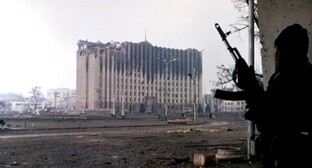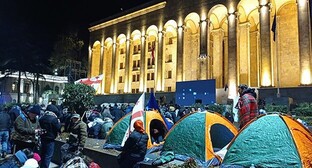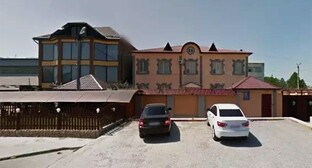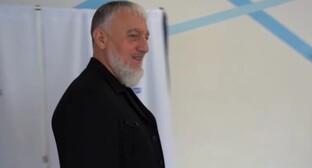08 December 2003, 23:47
Statement by Yerevan Press Club about draft law "On Mass Communication"
On December 2, the National Assembly of Armenia adopted the draft law "On Mass Communication" in the second reading. After the ratification of the draft on September 24 in the first reading, the journalistic organizations, actively participating in its further development - Yerevan Press, Journalists Union of Armenia, Internews Armenia, Committee to Protect Freedom of Expression - kept presenting a set of potential objections to certain provisions of the document (see details in YPC Weekly Newsletter, September 19-25, 2003). Between the first and second readings, the majority of the proposals of the four journalistic organizations and certain media were introduced in the document. The comments of the Council of Europe, "Article 19" international organization and the German Technical Cooperation Society (GTZ) have also been considered. In particular, principal amendments were introduced in the articles provoking most criticism of the journalists and experts on the right for refutation and response, accreditation and responsibility of the journalists, status of foreign media in Armenia.
At the December 3 press conference of YPC, JUA, Internews Armenia, Committee to Protect Freedom of Expression, the statement of Yerevan Press Club about the draft law, adopted in the second reading, was publicized.
The YPC statement runs:
"Yerevan Press Club in general positively evaluates the draft law "On Mass Communication" adopted in the second hearing. The circumstance that the document for the past year and a half has undergone significant positive changes was resulted in both by resolute protest of the journalistic community against a number of unacceptable provisions, restricting freedom of speech in the first variant of the draft law, and the constructive participation of all the parties interested in its improvement in further stages. It is difficult to point to another case in which representatives of the sphere regulated by relevant legislation have so actively and effectively participated in the protection of their own rights. This precedent inspires certain hopes for real establishment of civil society in Armenia, and we have ground to take pride in the fact that it is journalists that are now making a significant step forward in this direction.
At the same time it is essential to note that both the authors of the draft law and the ad hoc parliamentary committee have demonstrated at the final stage of discussions of the document extreme openness and willingness to reckon with the remarks and proposals of the journalistic community. A significant factor, promoting consecutive improvement of the draft law, has also become examination and recommendations of a number of international organizations in particular the Council of Europe, "Article 19", German Technical Cooperation Society (GTZ). A working group on media legislation, created on the initiative of OSCE Office in Yerevan, has played an effective role for coordination of efforts of international organizations and diplomatic missions, accredited in Armenia, and local public organizations.
Expressing satisfaction with achieved results, it is at the same time essential to acknowledge that a number of Armenian politicians and journalists keep expressing their fears that certain provisions of the draft law may restrict freedom of speech. Therefore, for removal of certain contradictions and inaccuracies in the document, we think it necessary to continue work on the latter after its adoption as well.
Alongside this, we stress the necessity for coordination of efforts on further development of the given draft law to bring it in conceptual accordance with separate provisions of the Criminal, Civil Codes and the Code of Administrative Violations. This issue, as well as the previously adopted RA Laws "On Television and Radio", "On Freedom of Information" did not enjoy proper attention on the part of the journalists. Meanwhile their role for the liberalization of the information sphere is no less significant than the draft law "On Mass Communication" that has become subject of such heated debates. We hope that the interest in drafting of legislation, apparent among our colleagues in the past few months, will embrace all the set of legal problems related to media.
Analyzing the activities around the draft law "On Mass Communication", we cannot omit the problems impeding constructive work on its improvement. Regretfully, the document was repeatedly subject to the danger of becoming hostage of personal ambitions and political intrigues having nothing in common with the interest in legislative guarantees of freedom of speech. The draft law was even frequently evaluated and speculated upon by the people who did not do as much as get acquainted with the document. All of this created a tense atmosphere and caused serious damage to the professional unity of the journalists.
The lack of coordinated efforts of the international experts, commenting on the draft law, led to contradictions in their recommendations and impeded the work on the document. The inexplicable halo of secrecy around the conclusions of the Council of Europe experts, created by RA official structures, inaccessibility of these materials to the representatives of the journalistic community, who worked on their proposals, also impeded the establishment of the unified and accorded position of freedom of speech supporters. We hope that all of this will serve as a good lesson for the future.
Yerevan Press Club expresses special gratitude to its partners for cooperation in the work on the draft law "On Mass Communication" - Internews Armenia public organization, Journalists Union of Armenia and the Committee to Protect Freedom of Speech. We rely on the fact that the wide coalition of forces, interested in the freedom and independence of media, will continue its efforts on improvement of legislation and at the same time will concentrate its attention on the development and introduction of mechanisms of the self-regulation of information sphere. It is in self-regulation, as an alternative of legal regulation, that we view guarantees of genuine freedom of speech."
Source: Yerevan Press Club (Armenia)




